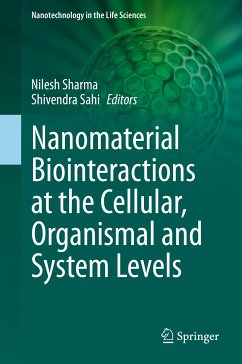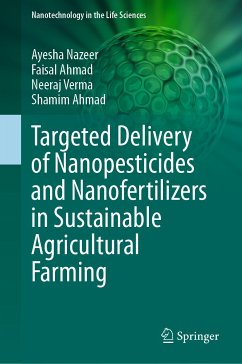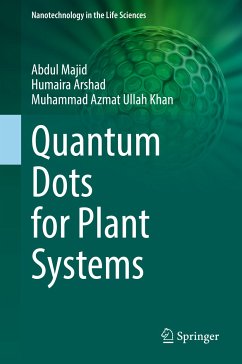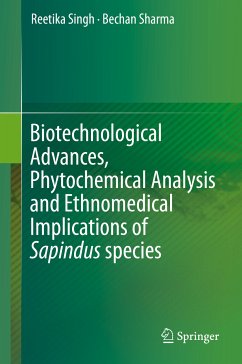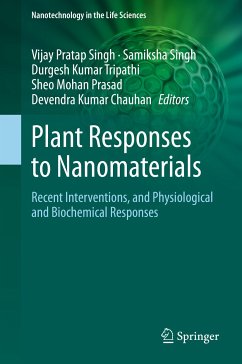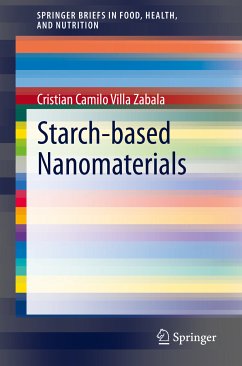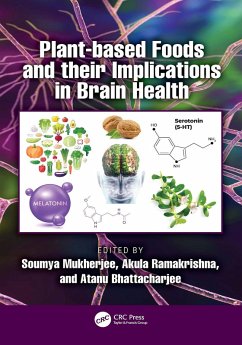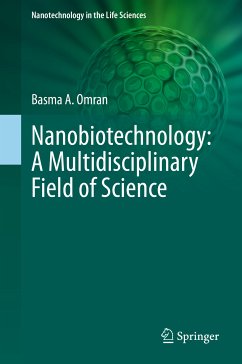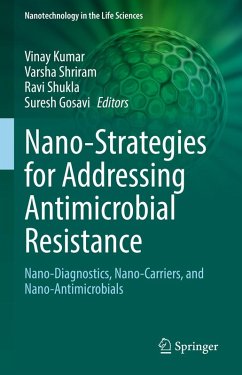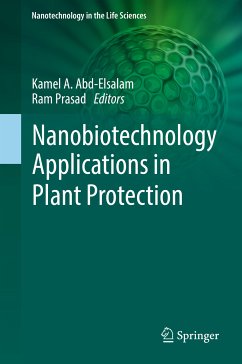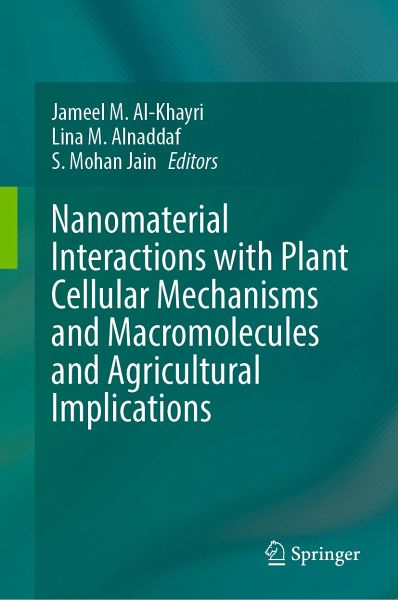
Nanomaterial Interactions with Plant Cellular Mechanisms and Macromolecules and Agricultural Implications (eBook, PDF)
Versandkostenfrei!
Sofort per Download lieferbar
129,95 €
inkl. MwSt.
Weitere Ausgaben:

PAYBACK Punkte
65 °P sammeln!
This book focuses on the recent progress of nanotechnology with emphasis on the interaction between nanoparticles and plants on the cellular level. It is devoted to understanding the pathways of nanomaterials entry into plant cell and their influence on cellular organelle processes and influence on crop yield. It consists of 16 chapters grouped in 3 parts: Part I Cellular mechanisms, Part II Cellular macromolecules, and Part III Implications of nanomaterials. Chapters present the plant response to nanomaterial applications including morphological, physiochemical, and anatomical changes and the...
This book focuses on the recent progress of nanotechnology with emphasis on the interaction between nanoparticles and plants on the cellular level. It is devoted to understanding the pathways of nanomaterials entry into plant cell and their influence on cellular organelle processes and influence on crop yield. It consists of 16 chapters grouped in 3 parts: Part I Cellular mechanisms, Part II Cellular macromolecules, and Part III Implications of nanomaterials. Chapters present the plant response to nanomaterial applications including morphological, physiochemical, and anatomical changes and their effect on plant growth and productivity. The book discusses the mechanisms of absorbance and translocation of nanoparticles and their interaction with the plant cellular biochemical compounds and organelles. It presents the current perspective of nanomaterials influence on cellular processes which include photosynthesis, photorespiration and pigment synthesis and accumulation. In addition, it provides current understanding of the impact of nanomaterials on cellular macromolecules including carbohydrates, lipids, nucleic acids, proteins, hormones, and antioxidant defense activities. Collectively, these processes and biochemical compounds have implications on crop yield. Chapters are written by globally recognized scientists and subjected to a rigorous review process to ensure quality presentation and scientific precision. Chapter begins with an introduction that covers similar contexts and includes a detailed discussion of the topic accompanied by high-quality color images, diagrams, and relevant details and concludes with recommendations for future study directions.
Chapter "Impact of Nanomaterials on Plant Secondary Metabolism" is available open access under a Creative Commons Attribution 4.0 International License via link.springer.com.
Dieser Download kann aus rechtlichen Gründen nur mit Rechnungsadresse in A, B, BG, CY, CZ, D, DK, EW, E, FIN, F, GR, HR, H, IRL, I, LT, L, LR, M, NL, PL, P, R, S, SLO, SK ausgeliefert werden.
Alle Preise in Euro und inkl. der gesetzl. MwSt. | Innerhalb Deutschlands liefern wir preisgebundene Bücher versandkostenfrei. Weitere Informationen: bitte hier klicken
Support
Bitte wählen Sie Ihr Anliegen aus:
Rechnungen
Bestellstatus
Retourenschein
Storno



